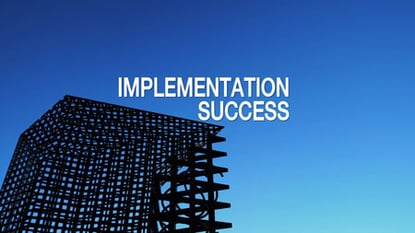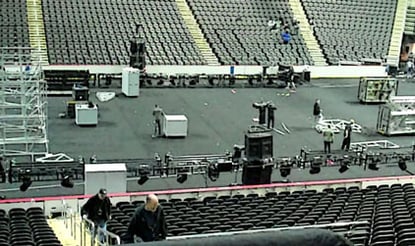When you're in charge of project management planning for an event-driven deadline, it's natural to become completely focused on making sure the big event itself is exceptional.
Whether the event is a conference, a meeting, a training session, or a report or recommendation deadline, when all your project management energy is focused on the event's success, it's easy to not properly address the important things that need to get done AFTER the big event. Inevitably though, the important things that need to happen afterward to solidify the new messages, learnings, and/or action items introduced at the big event can be as or more critical than the event itself to ensure positive change happens.
When all attention is on the big event and the adrenalin it generates fades, it's likely, however, the individual or project management team responsible for putting on the event just wants to move on to whatever is next.
 5 Strategies to Get Important Things Done after the Big Event
5 Strategies to Get Important Things Done after the Big Event
What can you do to minimize the chances of vital post-event deliverables getting lost in the shuffle?
Here are five strategies can implement early in the project management planning to set the stage for the follow-through you're going to need:
1. Create an initial timeline and budget extending beyond the event to include post-event activities.
Take the opportunity to mentally and fiscally extend your perspective beyond the event right from the start. Continuing your project timeline beyond the event keeps follow-on tasks in front of you throughout.
2. Assign a person to future activities early in the project management process.
If you have enough organizational depth, give someone specific responsibility for follow-on activities. Keep the person free, to the extent possible, of being burdened with specific event activities to stay fresh for what comes afterward.
3. Invest ample, dedicated time to “imagine” your situation after the event.
It's likely a big event will require tremendous creative energy to devise and implement your creative vision. When you still have early creative energy going, invest creative time into imagining how to keep the excitement going immediately after the big event.
4. Get leadership commitment upfront for follow-up actions.
When you're planning an event requiring a significant investment, a leadership team can get hesitant about investing post-event dollars and resources to sustain and implement follow-on activities. If you have to pitch doing the event in the first place, include the follow-on activities in your pitch to ensure they are viewed as critical activities to maximize the benefit from the event.
5. Launch development of post-event materials with everything else.
Instead of waiting until after the event to develop what's needed next, make every effort to produce the materials you'll need afterward while planning the original event. This can provide greater continuity, economies of scale, and set you up for greater implementation success.
Will these project management strategies work?
My personal experience in producing both multi-thousand person conferences and small group strategy sessions is it's always a challenge to make sure the follow-up items happen. If you get bored or run out of time, energy, or money, it's difficult to not let follow-on activities lag.
Trying whichever one or more of these five project management strategies makes sense for you, however, can help ensure you stay focused and follow-through with excitement and impact! – Mike Brown
If you enjoyed this article, subscribe to the free Brainzooming blog email updates.
Does your organization have good ideas, but lacks the project management techniques to bring them to reality? The Brainzooming Group and our collaborative, implementation-oriented project management techniques will quickly move you toward success. Email us at info@brainzooming.com or call 816-509-5320 for a free consultation on how to get started.



